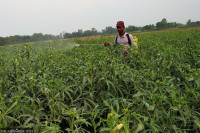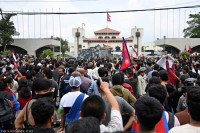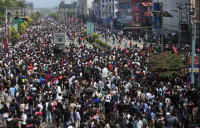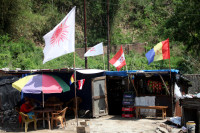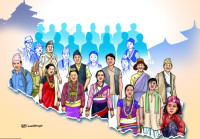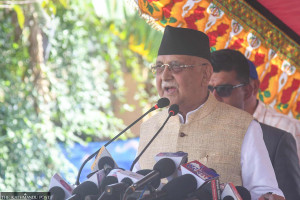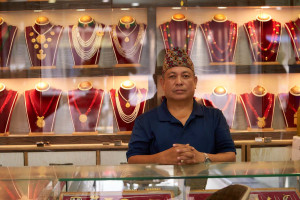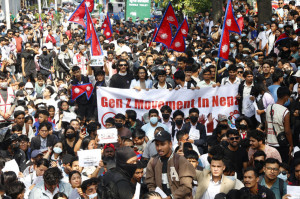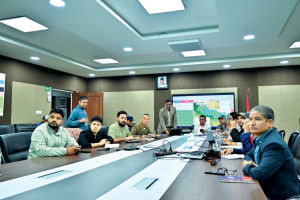Opinion
Old habits die hard
The Nepali state remains hesitant to investigate and prosecute acts of human rights violations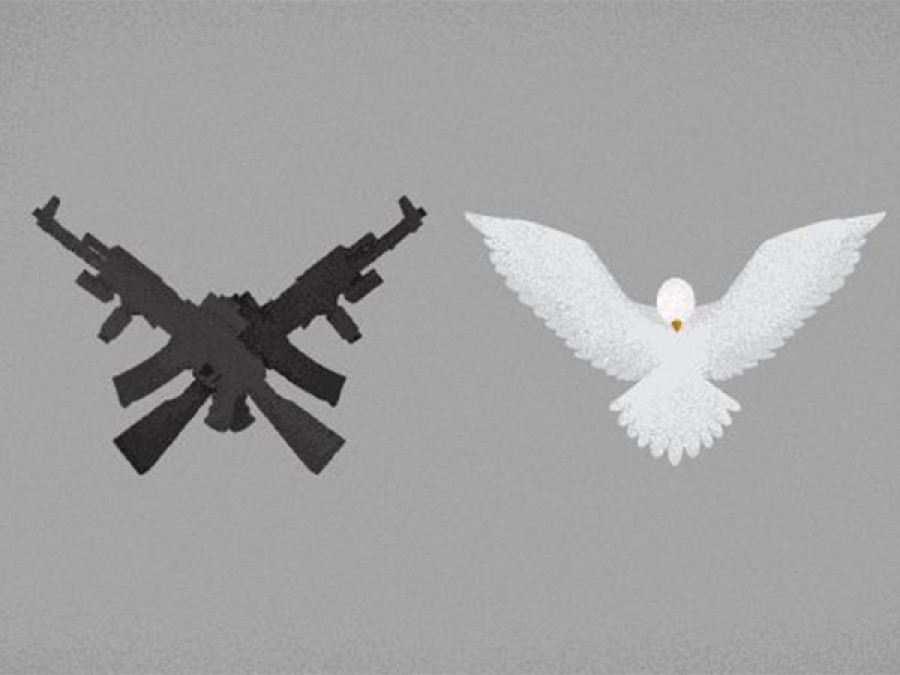
Even after more than nine years since the end of the Maoist war, justice remains an elusive dream for thousands of conflict victims in Nepal. All the governments formed after the conflict have either been controlled or hijacked by alleged perpetrators and violators of human rights. I, along with my family, have been waiting since the last 14 years to know the truth and whereabouts of my father, who was forcibly detained, tortured and disappeared by security forces under unified command led by then Deputy Superintendent of Police Pitambar Adhikari—who currently holds a senior position in Nepal Police.
Thousands of surviving families and victims of the decade-long war want to know the truth about their loved ones and see the perpetrators brought to justice. Unfortunately, the government and the major political parties protecting them have sidelined the victims’ agendas. However, the withdrawal of conflict-related cases; promotion of alleged perpetrators; attempts by the government to influence transitional justice commissions and advance its agendas; the undermining of criminal justice system by spreading false narratives about the peace process; disrespect of the Supreme Court verdict and lying to the international community, demonstrates that there is a little hope for justice and victim-centered approach in the country. Even the transitional justice process has no credibility.
At the UPR
Nepal underwent its Universal Periodic Review (UPR) on November 4 at the UN Human Rights Council, a ritual where states are held accountable for their record on human rights. Nepal’s delegation—led by Deputy Prime Minister and Foreign Minister Kamal Thapa—lied about Nepal’s abysmal human and civil rights record. It was a matter of great shame for war victims and the general public that the deputy PM—who has been named as an alleged perpetrator by the 2006 Rayamajhi Commission for his involvement in human rights violations under the then royal regime—was chosen for defending the government on such a global stage.
During Nepal’s session at the UPR, member states expressed serious concerns about the country’s failure to criminalise either torture or enforced disappearances, the persistence of widespread impunity and the ineffectiveness of transitional justice mechanisms, both the Truth and Reconciliation Commission and the Commission of Investigation on Enforced Disappeared Persons. Some of the areas highlighted by the review were: Nepal’s failure to pursue accountability for crimes committed during the armed conflict (1996-2006) including the failure to investigate and prosecute perpetrators of such crimes or to provide justice and reparation to victims, the 35-day statute of limitations on reporting rape cases, and the excessive use of force by security forces during recent demonstrations against the new constitution in the Tarai. Whatever be one’s view of the rationale for protests in the Tarai, the state continues to hesitate to investigate and prosecute acts of human rights violations as in the past. The recent Human Rights Watch report on police treatment of both protestors and Madhesis reads like something from the worst days of the Maoist conflict.
Failed commissions
Both of the transitional justice mechanisms have not been functioning well and have lost their credibility among conflict victims. The commissions have failed to gain the trust of the victims’ community, and have become yet another politicised government body whose members are only loyal to the political bosses who appointed them. Though it has already been eight months since the appointment of the members, the commissions still lack staff, and neither have a clear roadmap nor the commitment to address victims’ concerns and agendas. Till date, the members of the commissions have only squandered precious time and helped themsleves to taxpayers’ money. This is an outright mockery of victims’ struggles.
The commissions have failed to demonstrate any level of independence or victim-centric attitude. Forced to rely directly on government funding, the commissions cannot hire their own staff and have no control over their secretaries. This implies that the commissions are neither autonomous nor constitutional bodies. If their performances in the last eight months are any indication, these commissions cannot deliver on their mandates.
As a result of the faulty constitution process, the balance of political power and the politics of victimhood, the government has forgotten the past and continues to ignore Supreme Court decisions (June 1, 2007, January 2, 2014 and February 26, 2015). After the previous UPR in January 2011, Nepal accepted several UN recommendations. But four years later, it has not made any progress toward fulfilling those international obligations. Likewise, no significant steps have been taken to address impunity or effectively implement the court decisions and recommendations made by the National Human Rights Commission and the UN Human Rights Committee. Nepal has again accepted the UPR’s suggestion to revise the Transitional Justice Act in line with the Supreme Court verdict. But there are reasons to doubt its implementation.
A new conflict
The international community and civil society actors have not been cooperating with the commissions due to its flawed process. The Conflict Victim’s Common Platform has been demanding the creation of a conducive environment for critical engagement. But the commissions have failed to recognise these requests. The Parliament failed to amend the faulty clauses of the TRC Act, and without the necessary amendments and collaboration with victims’ representatives, the commissions are unlikely to succeed.
In such a fragile context, can the new constitution ensure peace and justice? The polarisation within the political class is seen by many as a final test of its commitment to peace and the constitution. But even as Nepal’s political transition may be coming to an end, we are seeing the beginning of a new, ethnic conflict.
The problem is that the government and leaders of the ruling political parties in Kathmandu have not bothered to listen to the demands of the Madhesis, Tharus and other indigenous Nepalis, Dalits and women who have been fighting against discrimination and injustice. Rural Nepalis continue to battle poverty and social exclusion—this provided fertile grounds for the Maoist conflict—and the sacrifices made by war victims appear to have been for nothing. The poorest communities like the Tharus, Madhesis, Magars who provided fighters for both sides of the conflict have seen no significant change in their lives since the end of the war. The class dynamics and division in Nepali politics could lead to another more virulent conflict. The corrupt establishment could find itself embroiled in the politics of revenge in which yesterday’s victims become tomorrow’s fighters.
Bhandari is the general secretary of Conflict Victims Common Platform




 15.12°C Kathmandu
15.12°C Kathmandu